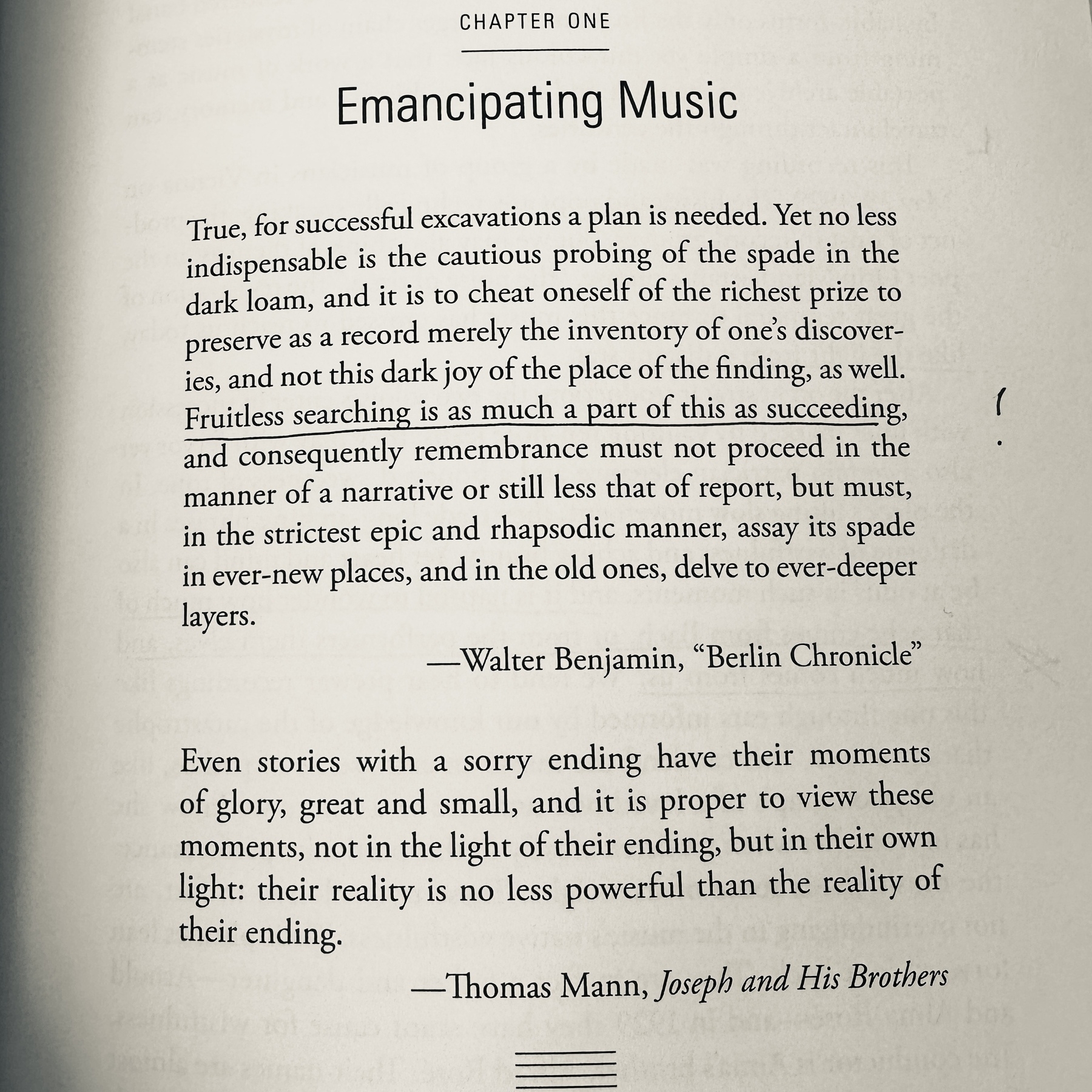Can’t sit still, can’t sit in silence. Don’t know how to read because we also have convinced them that it’s a meaningless activity, and they only want to be productive citizens. So even the patience to read a beautiful sentence — they don’t know how to love a beautiful sentence because they can’t check a box.
…Imagine sitting down with a book. You’re wanting to read, and the whole time you’re like “what’s the point, what’s the point, what’s the point, what’s the use?”
…In [Ray Bradbury’s Fahrenheit 451], one of the characters says, ‘We stopped reading books a long time before we started burning them.’… Totalitarian regimes can control you more easily if you don’t read.
…So we uplift freedom and yet the whole time we don’t realize how enslaved we are because we’re not readers, we’re not critical thinkers, we’re not imaginative thinkers anymore.
Just a dog riding shotgun — the pride, the hope, the infinite possibility!

Our model citizen is a sophisticate who before puberty understands how to produce a baby, but who at age thirty will not know how to produce a potato.
—Wendell Berry
Robert Frost and the composition of our lives
Also thinking of these reflective epigraphs from Eichler’s first chapter:

I would resist describing us as more masculine, as some of the characterizations in recent media stories implies. Such characterizations often overlook the fact that during the persecutions of the Soviet era, it was women—and primarily grandmothers—who were active in the Orthodox Church and who kept the faith alive (if often on life support). It was Baba who came to Liturgy, lit candles, prayed for her children, and saw to it her grandchildren were baptized.
While men and women are no doubt different physiologically, there is no such thing in Orthodoxy as “men’s” spirituality as distinct (or what is worse, opposed!) to “women’s” spirituality. Men and women, young and old, are all asked to pray and read Scripture daily, fast, give to the poor, work with their hands, confess their sins, join with the church in the worship of God, and receive Holy Communion. A godly Orthodox man and a godly Orthodox woman will live similar spiritual lives.
To journey for the sake of saving our own lives is little by little to cease to live in any sense that really matters, even to ourselves, because it is only by journeying for the world’s sake—even when the world bores and sickens and scares you half to death—that little by little we start to come alive. It was not a conclusion that I came to in time. It was a conclusion from beyond time that came to me. God knows I have never been any good at following the road it pointed me to, but at least, by grace, I glimpsed the road and saw that it is the only one worth traveling.
—Frederick Buechner
“But Dad, I don’t wanna go shovel snow.”

Augustine of Hippo:
Let the reader, where we are equally confident, stride on with me; where we are equally puzzled, pause to investigate with me; where he finds himself in error, come to my side; where he finds me erring, call me to his side. So we may keep to the path, in love, as we fare on toward Him “whose face is ever to be sought."
Disclaimer: While I have certainly vented my share of explitive-saturated frustrations about it, I am not, on a personal level (or at least not at this moment), overly critical of people who enjoy what are user-friendly and, really, the default cultural platforms for social media. (I get it.)
I also reserve the right to regret posting this.
But I’m just throwing this out there:
I have been soapboxing all things anti-Facebook for close to 15 years now and FWIW: none of the arguments I was making 15 years ago have changed — and no new ones have been added.
Neither symbolic Tech Bro pocket-change donations nor some commercially driven virtue-signaling on a certain “manly“ virtue-signaling podcast amount to anything truly new. In my view, these are hardly more than — to borrow and slightly bastardize a line from William James — “the mere trapping and decoration of the surface-show.”
That said, do continue the evacuation. (Just don’t forget who owns the real social media darling.)🙂